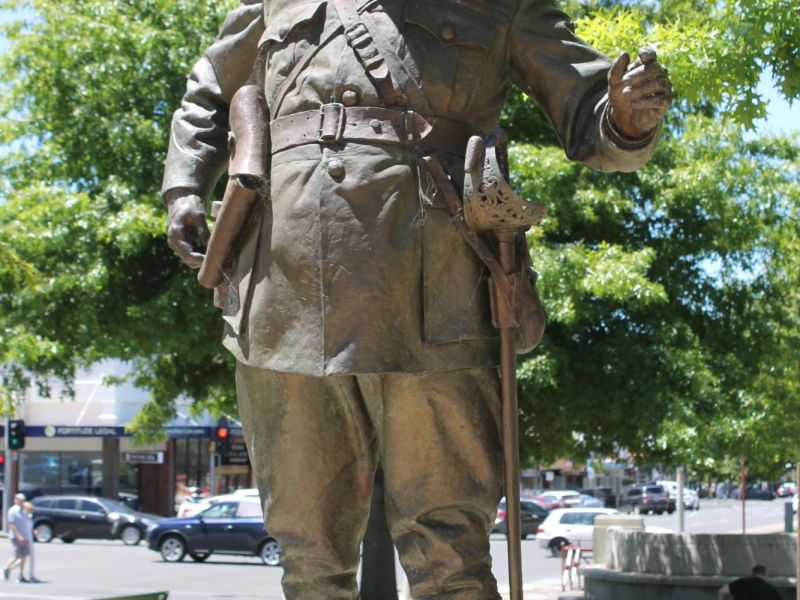Harold "Pompey" Elliott
Harold Elliott was born on 19 June 1878 and grew up in poverty on his parents' farm at West Charlton.
His life was transformed when his father discovered gold in Western Australia in 1894 and moved his family to Ballarat. The Elliotts lived at 'Elsinore' in Hotham Street, which then had spacious grounds extending towards Lake Wendouree.
Harold started secondary education aged 16, attending Ballarat College with his brothers. He overcame the legacy of his lost scholastic years with characteristic determination and ended up dux of school. The headmaster said he was a "glutton for work". Harold always retained an affectionate sense of affiliation with Ballarat.
He gradated in law from the University of Melbourne, sharing the prize for best results in his final year. Harold volunteered for the South African war, departing as a trooper and returning as a lieutenant. He was awarded the DCM for a daring exploit. After graduating he became a soldier, husband and parent. He was a wholehearted participant in the militia.
He commanded the 7th Battalion at Gallipoli. His men nicknamed him 'Pompey'. Wounded at the landing, he was prominent at Lone Pine, where four of his men were awarded the VC. His duel with a Turk in a camped, murky tunnel confirmed his conspicuous bravery. He was renowned for never sending anyone anywhere he was not prepared to go himself.
A superb tactician, Pompey tried - to no avail - to persuade his superiors not to attack at Fromelles. The operation proceeded and his 15th Brigade suffered 1,800 casualties in the worst 24 hours in Australian military history.
Pompey was then crucial in turning looming defeat into stunning victory at Polygon Wood, and again at Villers-Bretonneux, where the brilliant counter-attack he designed ended the German threat to Amiens.
At Polygon Wood, he went forward under fire at a critical time, and his indomitable presence lifted morale. His men knew that getting well forward to sort things out was typical of Pompey. Onlooking British soldiers, however, were amazed to see a Brigadier General in the front line, all the more when he used his authority and tactical insight to reshape the battle with a decisive intervention.
Pompey returned to Australia in July 1919, and was elected to Federal Parliament soon afterwards. He was typically undeterred by controversy in politics or AIF history. Prominent in commemorative activities, he unveiled many war memorials. He served Ballarat College assiduously on its council and as a benefactor. Pompey was promoted to Major General in 1927.
Pompey Elliott did his utmost to help returned soldiers with employment, pensions, legal advice and public advocacy. But the Great Depression sabotaged his efforts. His unceasing endeavours for ex-servicemen undermined his health and he died on 23 March 1931, aged only 52.
 Western Front Association Central Victoria Branch
Western Front Association Central Victoria Branch